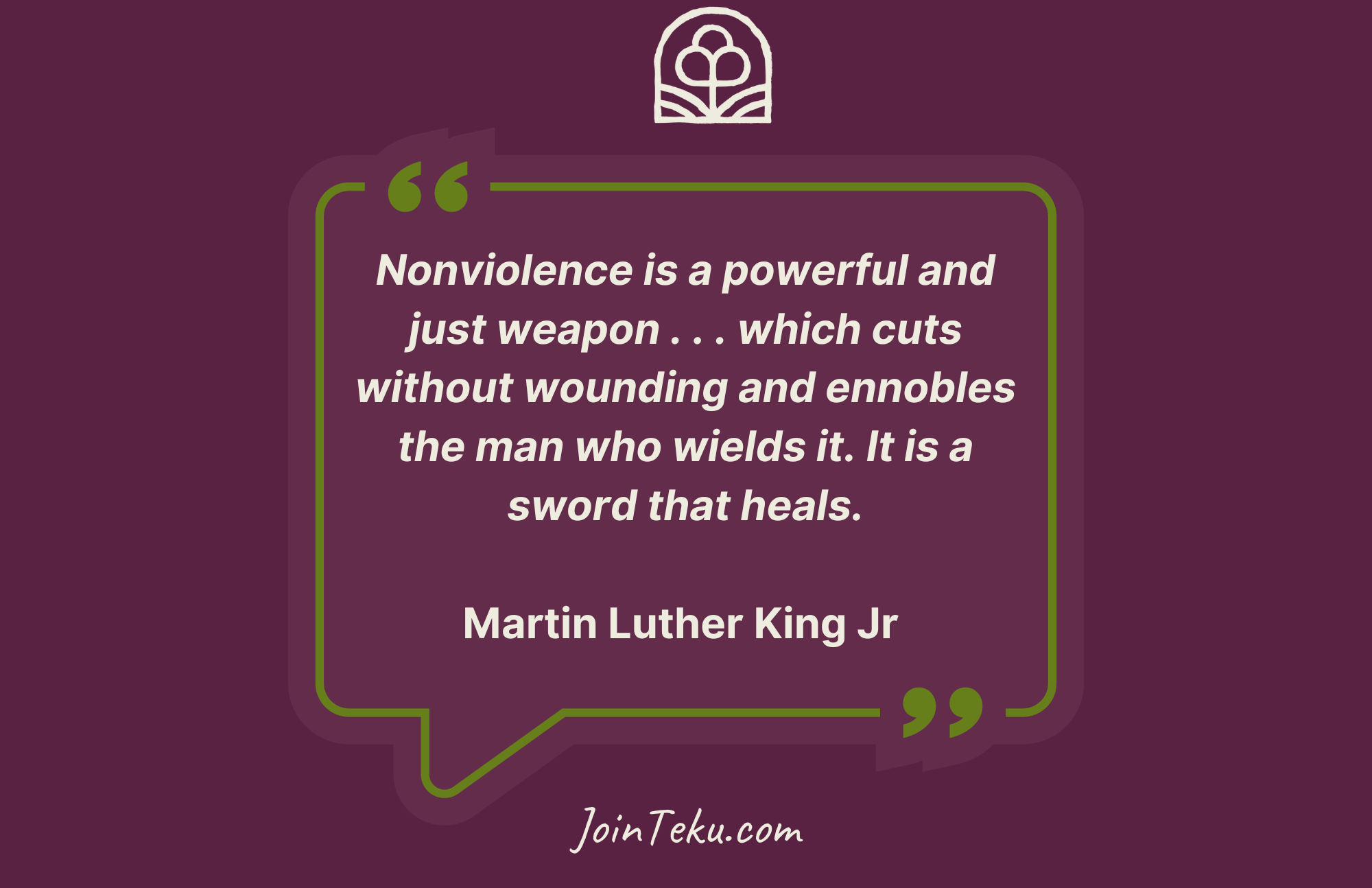In a world often characterized by anger, divisiveness and disagreements, the practice of Nonviolent Communication (NVC) offers a beacon of hope, opening promoting understanding, empathy, and conflict resolution. Rooted in the teachings of Marshall Rosenberg, NVC is a communication framework that seeks to foster connection and harmony, ultimately transforming the way we relate to one another. I spoke with Sahit Menon, an aspiring child psychiatrist who is currently participating in the highly competitive Medical Research Scholars Program (MRSP) at the National Institutes of Health (NIH). He recently completed a 200 hour yoga instructor program where he learned about nonviolent communication. Sahit described Marshall Rosenberg's Nonviolent Communication as “a communication framework emphasizing empathetic connection, where individuals express their feelings openly, while actively listening to the needs of others, fostering compassionate dialogue and conflict resolution.”
This continuous process encourages open and honest communication, fostering a shared understanding between individuals, and paving the way for cooperative problem-solving.The practice of nonviolence has a rich history deeply rooted in various religious, philosophical and cultural traditions. Ahimsa, or nonviolence, is a central tenet in both Hinduism and Buddhism, and it is taught as a philosophical framework to be fostered through yoga and meditation practice. The practice of nonviolence has nourished ethical farming and eating practices, such as vegetarianism and veganism; it has inspired leaders such as Mahatma Gandhi and Martin Luther King; and it shows up in our current world through nonviolent protests demanding peace, human rights and environmental justice. The practice of nonviolence in communication is a widely accepted concept within mental health interventions which aim to improve relationships through clarifying goals, improving direct and kind communication and promoting problem solving skills.
Nonviolent Communication, also sometimes called Compassionate Communication, is a communication model developed by Marshall Rosenberg in the 1960s. At its core, NVC is built on the idea that conflicts arise from unmet needs, and the key to resolving them lies in identifying and addressing these needs. The practice involves four essential, interconnected components:
- Observation: Objectively describe the situation without judgment or evaluation.
- Feeling: Express emotions triggered by the observation.
- Need: Identify the unmet need behind the emotion.
- Request: Make a clear, actionable request to meet the identified need.
This continuous process encourages open and honest communication, fostering a shared understanding between individuals, and paving the way for cooperative problem-solving.
Nonviolent Communication has the potential to significantly improve our collective mental health by addressing fundamental human needs for connection, a sense of belonging, and respect. In a world that often emphasizes differences, NVC shifts the focus towards shared human experiences and emotions. This shift promotes empathy and understanding, creating a supportive environment where individuals feel heard and valued. Empowered NVC further acknowledges that our differences matter, validates the experiences rooted in those differences, and simultaneously calls for empathy toward universal human experiences.
Through NVC, individuals learn to recognize and express their emotions and needs, leading to a more profound self-awareness. As people begin to communicate with authenticity and empathy, their fear of judgment diminishes while their sense of validation increases, ultimately reducing stress and anxiety. This practice enhances relationships, promoting mental well-being on both individual and collective levels.
Embarking on the journey of Nonviolent Communication requires a lifelong commitment to learning and practicing its principles. If you’re interested in fostering this practice, here are some steps to get started:
- Educate Yourself: Familiarize yourself with the principles of NVC through books, workshops, or online resources. Marshall Rosenberg's seminal work, "Nonviolent Communication: A Language of Life," is an excellent starting point.
- Practice Empathy: Develop your ability to empathize with others. Actively listen, seek to understand their feelings and needs, and respond with compassion.
- Use "I" Statements: When expressing yourself, focus on your own observations, feelings, needs, and requests. This helps avoid blame and encourages constructive dialogue.
- Join a Community: Seek out local or online communities that practice NVC. Sharing experiences and learning from others can provide valuable support and encouragement.
- Be Patient: Changing communication habits takes time. Be patient with yourself and others as you navigate this transformative process.
- Reflect: Identify situations where your communication aligned with NVC principles, and others where you feel that you could have improved. Taking a step back can be crucial to acknowledging your progress, and identifying where you want to grow.
Nonviolent Communication is not just a communication tool; it's a philosophy that has the power to reshape the way we relate to one another. By embracing NVC, we contribute to a world where understanding and compassion prevail, ultimately fostering collective mental health and well-being. As we embark on this journey, let us recognize the transformative potential of our words and actions in building a more harmonious and connected society.
If you’re interested in learning more about NVC, join our Teku Book Club, hosted by Dr. Barbara Robles-Ramamurthy and Sahit Menon on January 11, 2024 at 12:30pm CST. Sign up for the
Teku newsletter to receive updates and zoom access.


